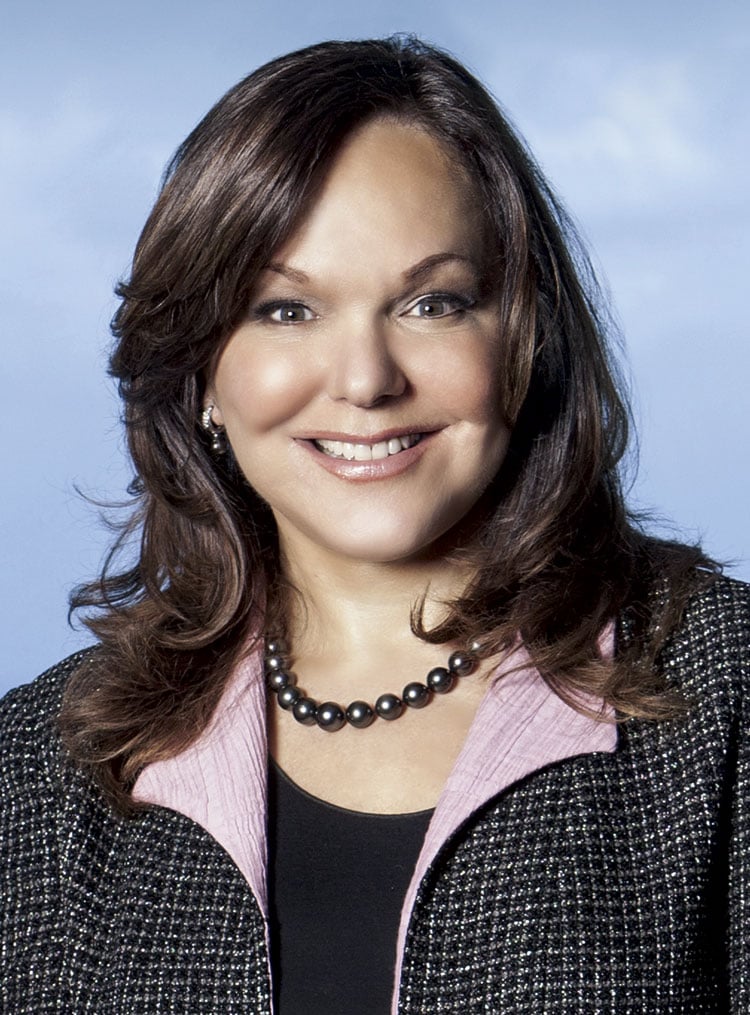It was a very good year: Research on long-term careers for women tops President Bass' achievements

Photo of Hilarie Bass courtesy of the Office of the President
As a woman practicing in big law for more than 25 years, my initiative, Achieving Long-Term Careers for Women in Law, which focused on why women continue to leave the legal profession, hit home. Although women have been graduating from law school in roughly equal numbers as men for decades, their career paths are quite different. Twenty years after law school, when lawyers should be in their most productive years, far too many women have not reached the same success as men, and close to half have left the profession entirely.
There are many theories and anecdotal evidence as to why women are leaving, but anecdotes don’t change policies, data does. So this year, the ABA funded research on legal careers of women lawyers, including surveys, focus groups and studies focused on the long-term career trajectories of women lawyers. We investigated the issues faced by women lawyers over the age of 50 and women lawyers of color. We hosted two national summits with leaders of the profession – at Harvard Law School last fall and at Northwestern Pritzker School of Law in June.
The findings will be released in the coming months, but early analysis shows results for women were dramatically different from their male colleagues. We learned that the reasons for the exodus of women from the profession are many, including success fatigue, implicit bias, lack of work-life balance, sexual harassment and discrimination. Our surveys found:
• 45 percent of women lawyers reported that they had been denied proper access to business development opportunities because of their gender.
• 58 percent of women lawyers reported that they had experienced demeaning comments, stories or jokes.
• Nearly 60 percent of women lawyers reported that they had been mistaken for a lower level employee.
• Approximately 30 percent of women lawyers reported that their gender affected their ability to achieve salary increases or bonuses, desirable assignments and access to sponsors.
Focus groups highlighted stories from women lawyers who felt they were used as a diversity token in a client meeting or had credit for work they had done stolen by a male colleague. Too many women lawyers said they often felt like Lucy and Ethel on the candy assembly line from I Love Lucy: stuck with workhorse assignments, expected to solve systemic problems and given unrealistic time expectations. Many women in their 50s with an impressive body of work told us they felt invisible within their law firms. Younger women associates complained about receiving less important assignments that did not allow them to advance. Experienced women attorneys describe “success fatigue,” a feeling of always having to work harder to achieve the same level of success as men.
Implicit bias also plays an important role in explaining many of these disparities. Many people do not believe they have biases, and when they are called out on it, they rationalize their conclusions to justify their behavior. But our studies found implicit bias is a major factor in explaining the differences in compensation and elevation between men and women in the legal profession.
Incidents of sexual harassment only add to the mix, compelling women to leave.
The goal of the initiative is to make empirically based recommendations for legal employers to help create environments that allow women attorneys to achieve their full potential. This will inevitably enhance the likelihood that women will not only reach the highest levels of practice, but also that they will remain in the profession. The recommendations coming out of this study will provide legal employers strategies to minimize or eliminate gender based implicit bias in hiring, elevation and compensation decisions.
We must do a better job of making our profession more hospitable to women and attorneys of color. Success may take a while, but we will have made real progress when the average hardworking woman is as successful as the average hardworking man.
Although my year is over, work on these important issues will continue. And I cannot think of a better steward for the ABA than incoming President Bob Carlson. I wish him every success.
Follow President Bass on Twitter @ABAPresident or email [email protected].



